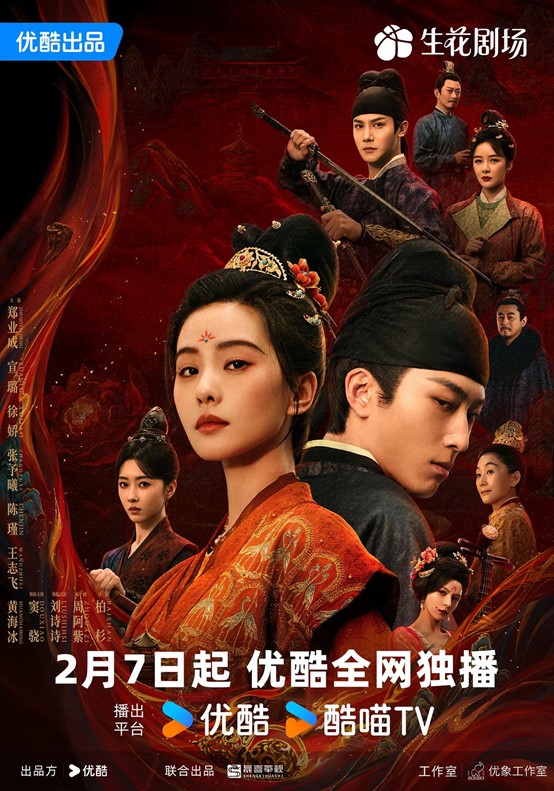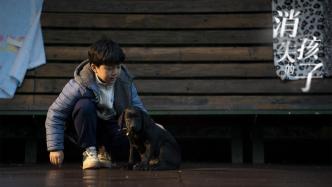
After entering the industry for 20 years, the screenwriter Qin Haiyan's creations are mostly film works. Films such as "Homecoming", "Find You", "Assassination of the Novelist", "The Results" and "The Bride" have also been shortlisted and awarded many times at domestic and foreign film festivals. . The recently broadcast TV series "Gone Child", although it is a relatively rare TV series in her career, still implements her realistic creative style.
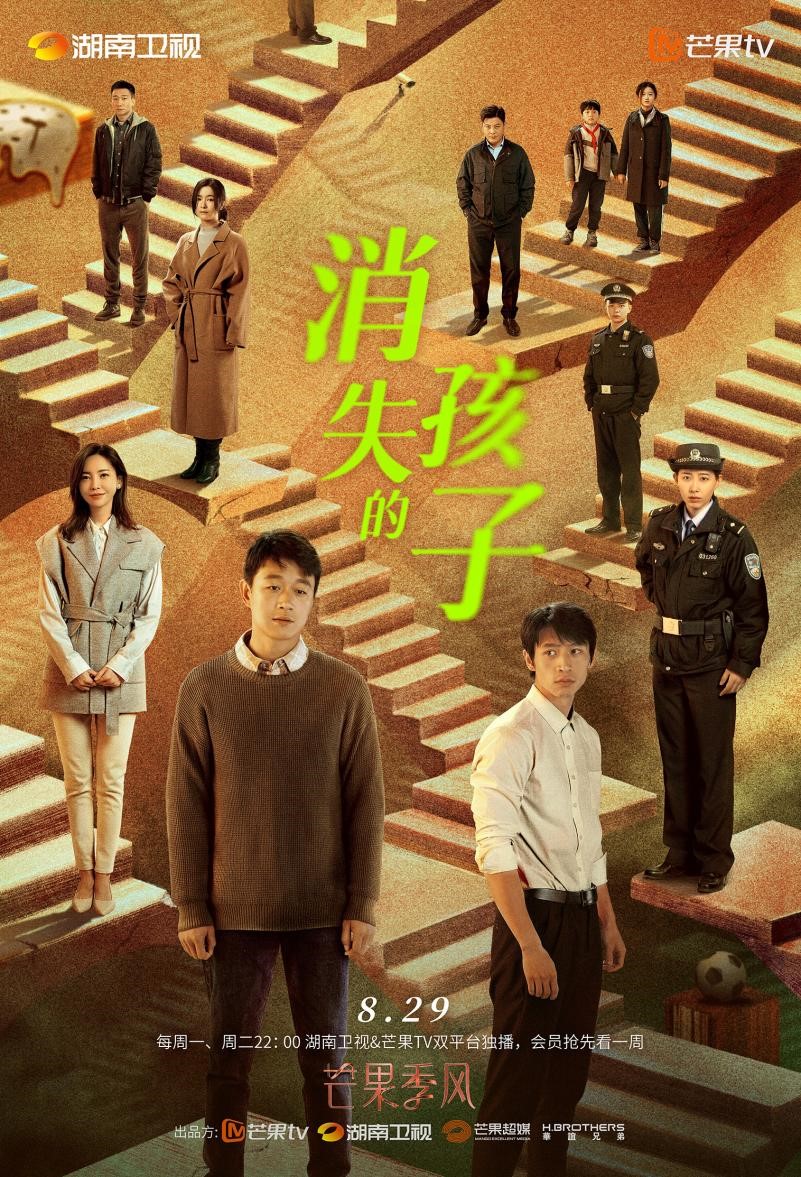
"Gone Child" poster
The play is adapted from the novel "Sea Anemone" by Beckerbon. Based on the bizarre disappearance of a child, three different cases are woven together in an ingenious way. When the mystery of the crime is finally revealed, several families are also revealed. source of misfortune. Huayi Brothers Pictures, one of the producers, had previously collaborated with Qin Haiyan on the movie "Find You", Qin Haiyan said with a smile, "The same is the theme of realism, but both are grafted with suspense elements, and they are all stories of 'finding children' The main line, may think of me."
She often receives many film and television projects based on novels. Qin Haiyan said that she will be very cautious about adapting it in recent years, but when she saw the novel "Sea Anemone", she read it in one breath and found the content very attractive, so she took it without hesitation. project. Different from the many subversive adaptations in the past, in the style of "rising from the ground to a tall building", for "Sea Anemone", Qin Haiyan admitted that because of the respect for good content, she and the team "put down the pride of the creator", and for the original work Story retention is pretty high. Qin Haiyan believes that the most interesting part of the original work is the three-line parallel of "the disappearance of the child", "the case of hiding the body" and "the case of sexual assault". The three lines seem to be disconnected from each other at first, but in the second half of the story, the three lines converge to the main line of finding the child. From the very beginning, Qin Haiyan insisted on retaining this three-line narrative style. "But frankly speaking, in this adaptation process, the biggest challenge is to stick to this method and 'battle' with the previous creative experience of a single narrative." Qin Haiyan said.
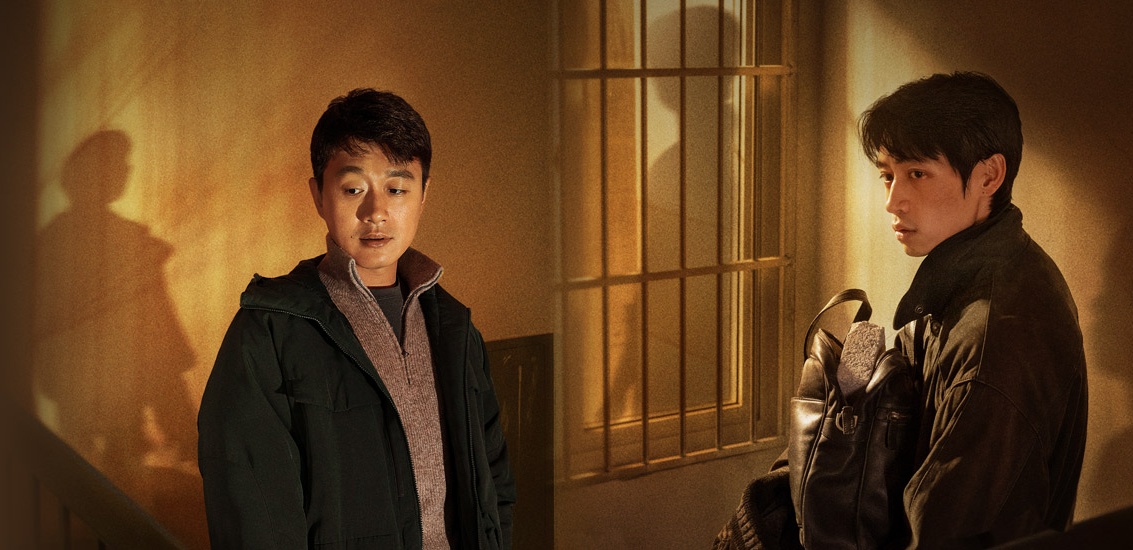
"Gone Child" stills
The difficulty of multi-line narrative is that first, it increases the threshold for the audience to enter the story and concentrate; second, it is easy to make several story lines too scattered. Qin Haiyan clearly knows that if a three-line narrative is adopted, some methods must be adopted to focus the audience's attention. "Frankly speaking, the original is not a suspenseful content that emphasizes strong plot and strong reasoning process, then we have to use the characters in the three story lines to attract the audience's attention and make the audience interested in the fate of the characters. It may be forgiven for being in the middle of the three lines. The other is to use an audio-visual method to connect the three lines.” Qin Haiyan, for example, in the play Yang Mo’s puppy was forcibly thrown away by his parents, and the dog was hit by Lin Chuping’s car after leaving home. Yuan After the puppy was found in the afternoon, the puppy was buried. "Attempts like this to tie the three lines with one accident, we actually do a lot."
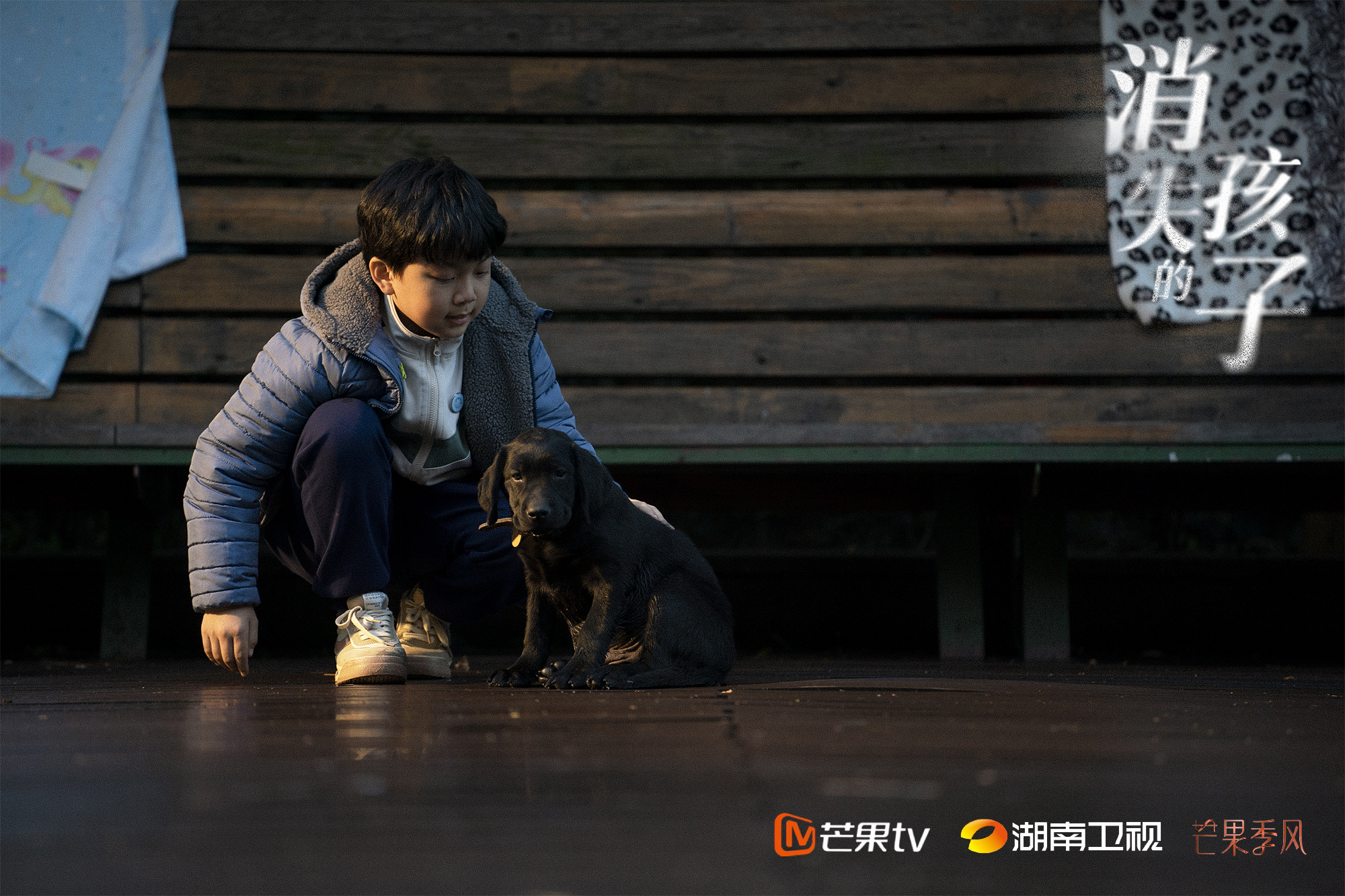
"Gone Child" stills
During the creation, Qin Haiyan led the team to make a table. First, the winter solstice day when Yang Mo disappeared was divided into plot points in minutes. Then, a few days before the winter solstice, Lin Chuping found the murderer of sexual assault and Yuan Wu's father died. These two lines are also sorted out in detail. "What happened on which day, and which plot points are made into an Excel table, and then look at the three lines to see which plot points can be matched." Qin Haiyan recalled and sorted it out. The form is printed out, and it is almost covered on the long table two or three meters in her studio. "Some of the plot points that everyone thinks are very small are all logically deduced and ticked a little bit. It may not seem important, but in fact, as long as one plot point is moved, it will affect the whole body."
Innovation is always risky, and not only audience acceptance, but also industry skepticism about “innovations” that lack a successful precedent. Three parallel lines, each episode cuts into the story from a different character's perspective. These ideas were not overturned during the creation process, but what makes Qin Haiyan happy is that when it came to the editing stage, the editor finally adopted the narrative method she originally chose, "Proving that Our judgment on the content at the beginning is still preferable.”
Last year, Qin Haiyan also wrote and directed the new film "I Passed the Storm". After becoming a director for the first time, she experienced the hardships of execution, but she still thinks that the screenwriter has a pure joy that is only related to the content of the creation itself. She believes that screenwriting is actually a very good way of "psychotherapy", "No matter what happens in your life, you can see yourself and the world better through writing, which is a great help to me, and I am very grateful for this. occupation."

In June last year, "I Passed the Storm" released a finalized poster
【dialogue】
To show an extreme character through audiovisual language may be beyond the screenwriter's authority
The Paper: The line of Yang Yuan is an ordinary family that audiences are better able to bring into, but Yuan Wu is an extreme and unusual character. In the original work, there will be descriptions of his state and history, such as how his mother controlled his growth and development. Marriage, such as how he dealt with his father's body, helps readers to introduce and understand Yuan Wu through these descriptions, but there will be less descriptions in this aspect in the play?
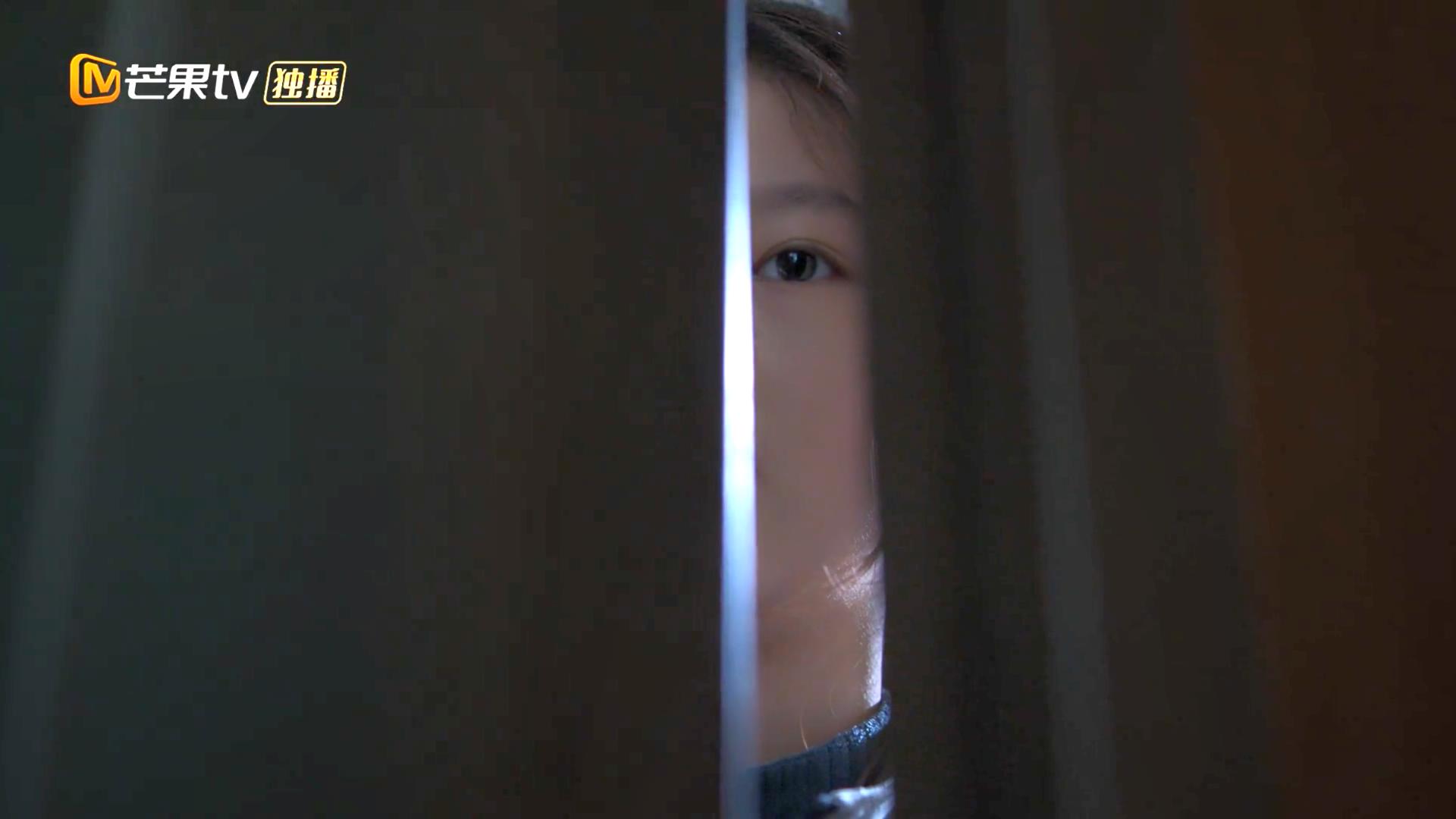
"Gone Child" stills
Qin Haiyan: One is that the novel itself is more literary and the description is more detailed, and we need to show such an extreme character through audio-visual language. How much we can show may be beyond our screenwriter's authority. But we have compassion for every character in this story. The novel has a very clear theme. When adapting, we also chose to focus on the original family and parent-child relationship. We want to discuss parent-child education and what is family.
I have a pedigree in my heart. I just said that Yuan Wu is an extreme character, and his family's control over him is an extreme state of native family. He has been raised into a so-called giant baby, and he has lost his social connection. and the possibility of growing up. At the other extreme, Enhuai stands, her family, on the contrary, is very alienated. In the middle of the two ends is the Xiao Mo family, just like every family around us. It is a piece of chicken feathers in educating children, but there is love. The three people (family) in this vertical and horizontal axis, where they will end up, is what I want to explore. In the episode, we still gave a warm ending, and each group of character lines has grown.

"Gone Child" stills
The Paper: You also have children, what do you think a good parent-child relationship should be like?
Qin Haiyan: It's actually a kind of balance. Continuing what I just said, it depends on whether the line you are pulling is loose or tight. Balance is difficult. You can only choose when you do everything. I think the child is born. They are very independent individuals. I will respect who they want to grow into. All I can do is to provide them with enough love and warmth before they turn 18, and let them go at the right time, so that they can spend their childhood in the future. Healing the problems that may be encountered on the way of life.
Look at the families in this story, the children will not always grow up as you wish, but I think the family like Yang Mo is at least warm. Parents are learning when it comes to educating their children. .
Whether it's an original or an adaptation, you must find the point that moved you in the first place
The Paper: Having worked with many directors, what do you think is the best cooperation status between a screenwriter and a director?
Qin Haiyan: I think some of the works that I am currently satisfied with, such as "Find You", the directors really respect the script very much, and they wish they could shoot every word. If we compare film and television creation to building a house, our screenwriters draw the blueprint, and the director leads the construction team to turn the blueprint into a house. This is the best cooperation model.

"Find You" stills
I became a director myself last year, and I realized more deeply that a lot of the joy of original creation, for me, is still in the early and later stages, as a screenwriter and editing stage, when you have a direct relationship with the content, in the The threshold of happiness at the moment of creation is extremely high, and this happiness can overcome many powers to deal with human relationships or some trivial affairs. The director is very hard, because the director is faced with a process of organizing production and execution, dealing with many people, involving too many trivial and complex things, not just a simple and pure creative process.
The Paper: There are many original and adapted works. Let’s talk about the similarities and differences between original and adapted writing?
Qin Haiyan: I have had a lot of adaptation projects before. In fact, I made the adaptations like the originals, and the whole story was overturned and rebuilt after building a high-rise building on the ground. But "Gone Child", after we got the novel, we recognized and respected its original content and words. Facing such a good story, we must reduce our vanity and pride as a screenwriter for "showing off his skills". low profile. The work itself is greater than the vanity and pride of each of us, and the creator's job is to "grow" the work into what it should be.
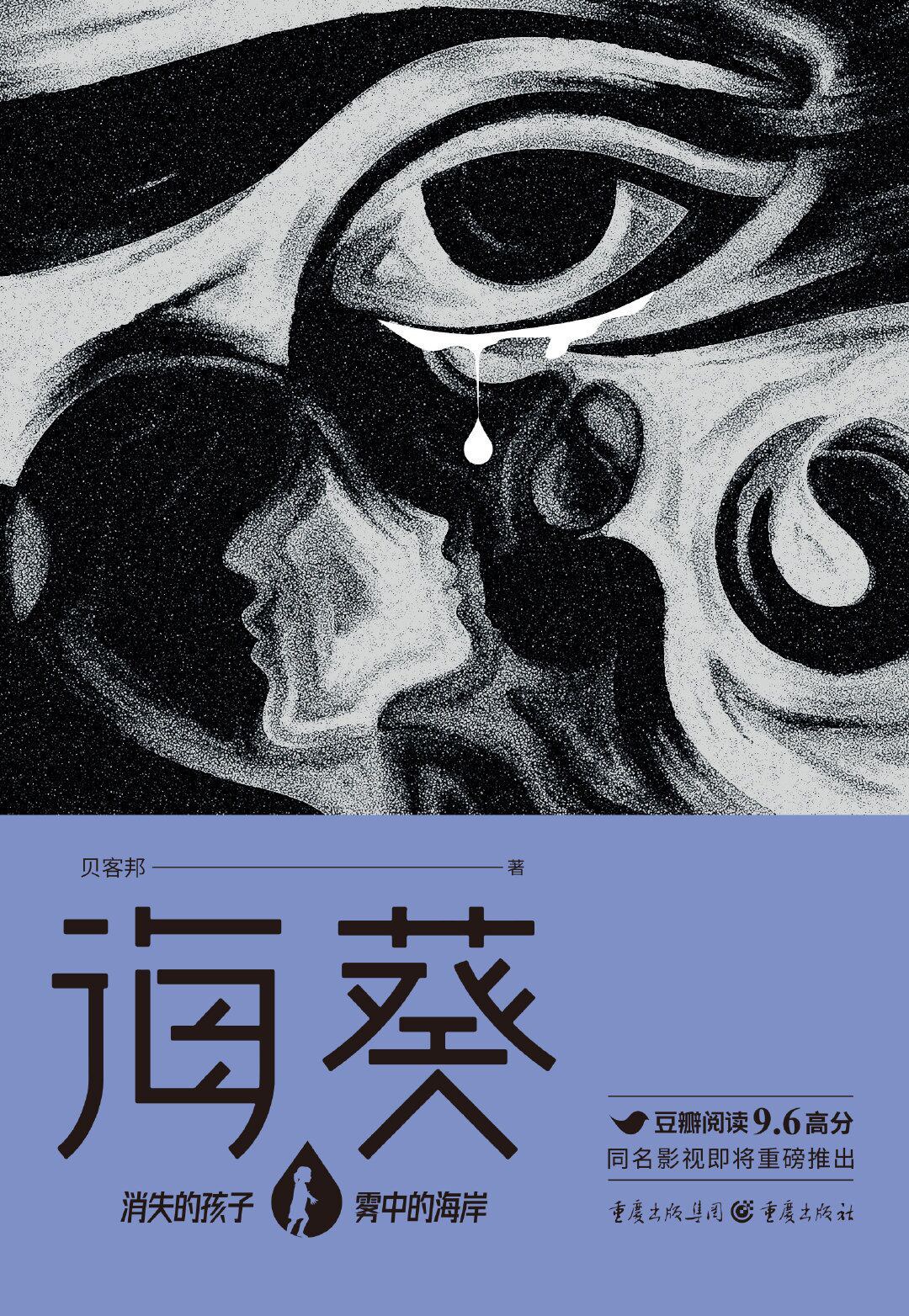
The TV series "Gone Child" is adapted from the novel "Sea Anemone"
Of course, no matter whether it is an original or an adaptation, the creative process is the same for the final presentation. You must also find the point that touched you in the first place, or the point that you think resonates with the audience. This thing cannot be lost in the creative process. . Like "Gone Child" this time, what first moved me was the theme of the original family and parenting, so I would do it around this point.
The Paper: In recent years, it can be observed that in the TV drama industry, there are very few original scripts, and most of them are IP adaptations. I would like to hear your observations and opinions on this phenomenon?
Qin Haiyan: In fact, cultivating originality requires patience for capital. I also often say that I admire any company that can still stay in the film and television industry to make film and television investment or make film and television production, because the film and television industry is really difficult now, and film and television projects are products as products. The investment cycle is long and the return is uncontrollable, so I also understand that as an employer, if you want to do a project with IP, the creative cycle can be shorter, and the adaptation must at least have a bottom line. But no matter whether it is an adaptation or an original project, the creator should do it with the attitude of facing the original project.
Feel that real, face-to-face encounter and then write the story
The Paper: Since your debut as a screenwriter, most of your works are realistic themes, which are also recognized as the most difficult to write in the industry. Why do you stick to realistic themes in your creations?
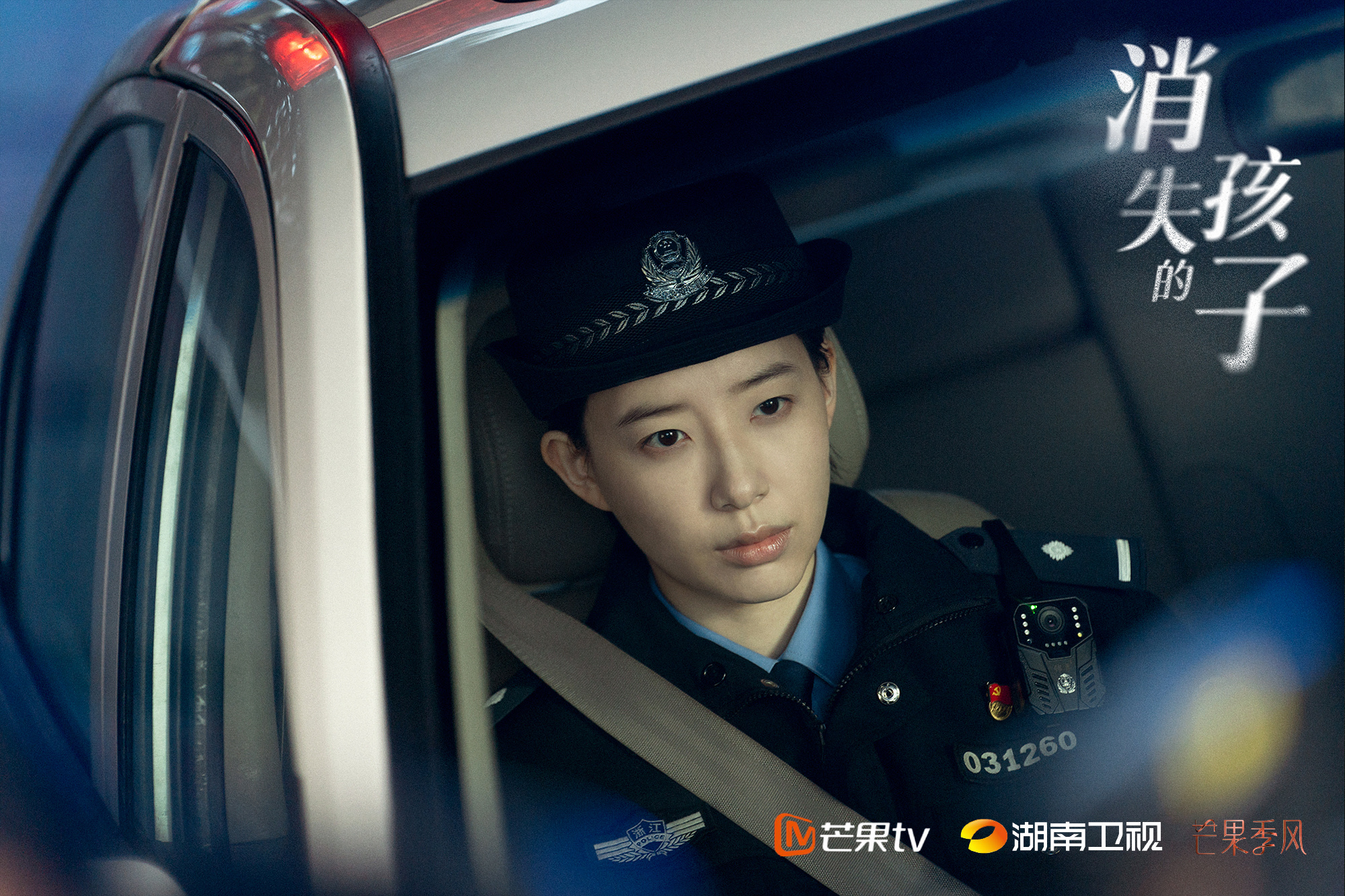
"Gone Child" stills
Qin Haiyan: I joined the industry in 2003 and 2004, and I have been writing for almost 20 years. It is not that I have not tried other things, such as love, comedy, crime, magic, etc. I have actually written them, so it is not me. Don't try other themes. But it may take a long time, and you will find that the "survival" or the better results are all realistic themes. So on the one hand, the market and I have a two-way choice, and on the other hand, I am really good at this aspect. But I think the realistic theme is not only the way of drama, it has become more dynamic now, and it is also because people have begun to graft other elements, such as "Gone Child", which is also grafted with suspenseful elements, and the viewability will be improved. stronger.
I think I have also summed up a set of creative methods for realistic themes, first doing field research, interviewing real people, feeling the real, face-to-face collision, and then writing stories. I mentioned earlier that the film I wrote and directed, "I Passed the Storm", is also a realistic theme. During the script stage, I interviewed about two or three hundred domestic violence cases. We were also inspired by the real experience of a diplomat in the recent release of "Homecoming". Personally, I am more easily moved by real stories, and the ones that are more suspended and I can't believe, I am not very good at writing them.
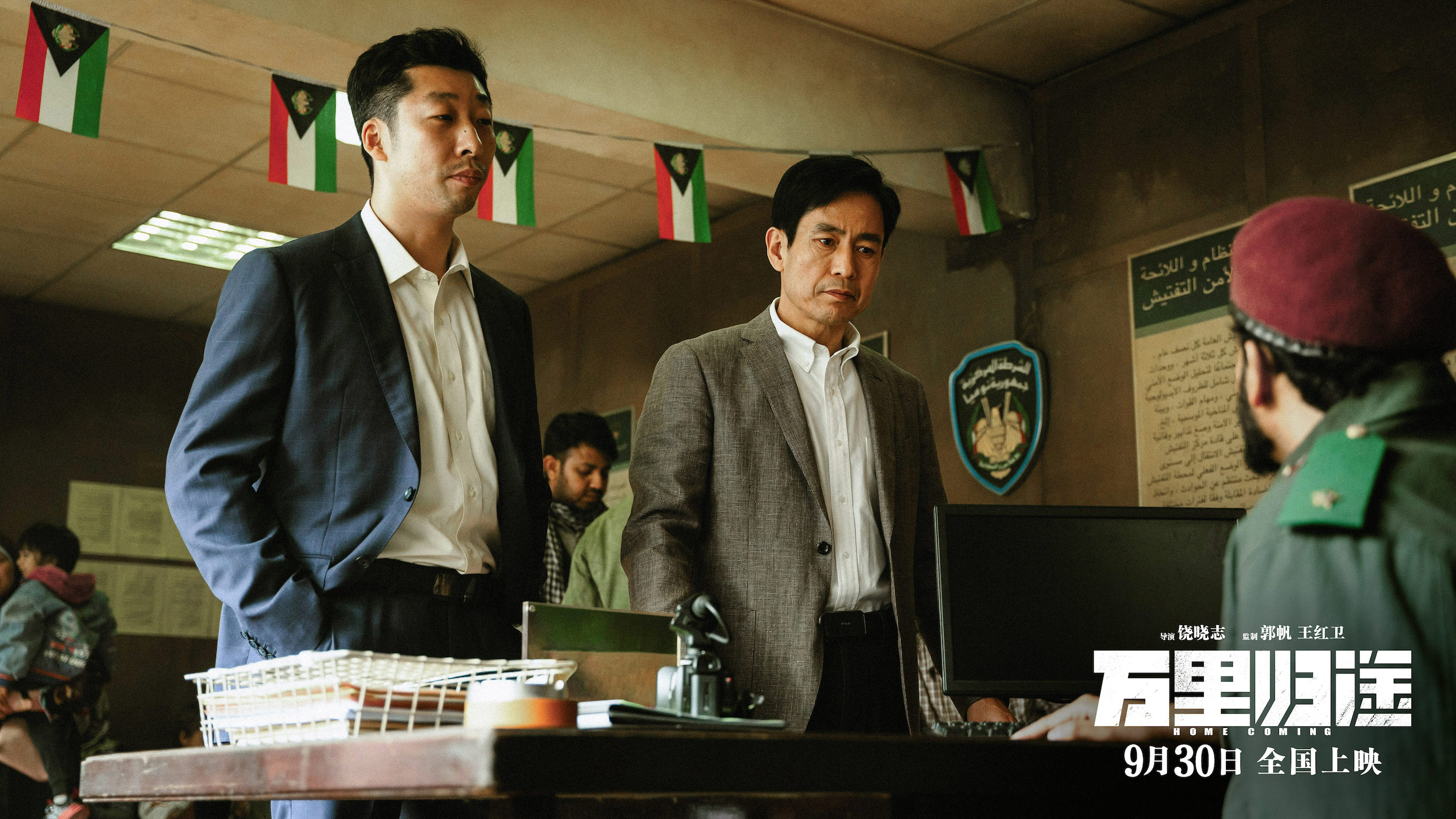
"Homecoming" stills
The Paper: When you are still young and young, how can you convince the employer that you can control the realistic themes that require life experience and experience accumulation?
Qin Haiyan: There is no persuasion, it is really just writing, because the projects that everyone has seen and filmed may be 1/5 of the scripts I wrote, and I have also written many projects that were not completed. Maybe it's better. In the early years, I could only keep writing and use what I wrote to prove myself. On the other hand, I think I may be a screenwriter who had children and a family early, so I have always lived a very flamboyant life. I have to worry about a lot of things every day, and I am very down-to-earth. This kind of life has also given me a lot of nutrition. When I entered the industry, I aimed at "making milk powder money", so I could keep writing.
For realistic themes, there are no shortcuts in creation, but interviews and investigations are still to be done, such as "The Journey Home". When I interviewed a diplomat, I heard him talk about how he was a civilian, how he went to Libya and evacuated tens of thousands of people back then, listen to When I get to some of the real details, if I have the physical feeling of chills on my back and goosebumps, then I will feel that this thing must be done. This real power can bring me a strong sense of belief and support.
The Paper: In the industry of screenwriting, do you think talent is more important, or skills acquired through training are more important?
Qin Haiyan: Talent is very important. Without talent, it is definitely not possible, but if you have it, you may not be able to. It is not enough to support you to become a professional screenwriter. From the beginning of my entry, to gradually finding the content that I am good at, I encountered a lot of doubts and setbacks in the whole process, including the problem of the survival rate mentioned above. The risk that the screenwriter took in the early stage was actually very large, and many projects were carried out to the middle of the script. , or the script has been written and it has not been completed in the end, which is quite common. At a certain stage, I also think: I have worked so hard, why do I still encounter so many problems? After all, the screenwriter is just a blueprinter. Whether the house in the back can be built or not, it has many industrial processes and various coincidences, which is really beyond your control. If you want to become a screenwriter who can stand up in this industry, you really have to ask yourself how much you love this thing, how much effort and time you are willing to devote to it. Upside down," and a particularly strong heart.

